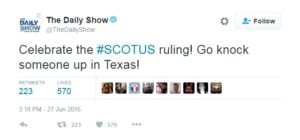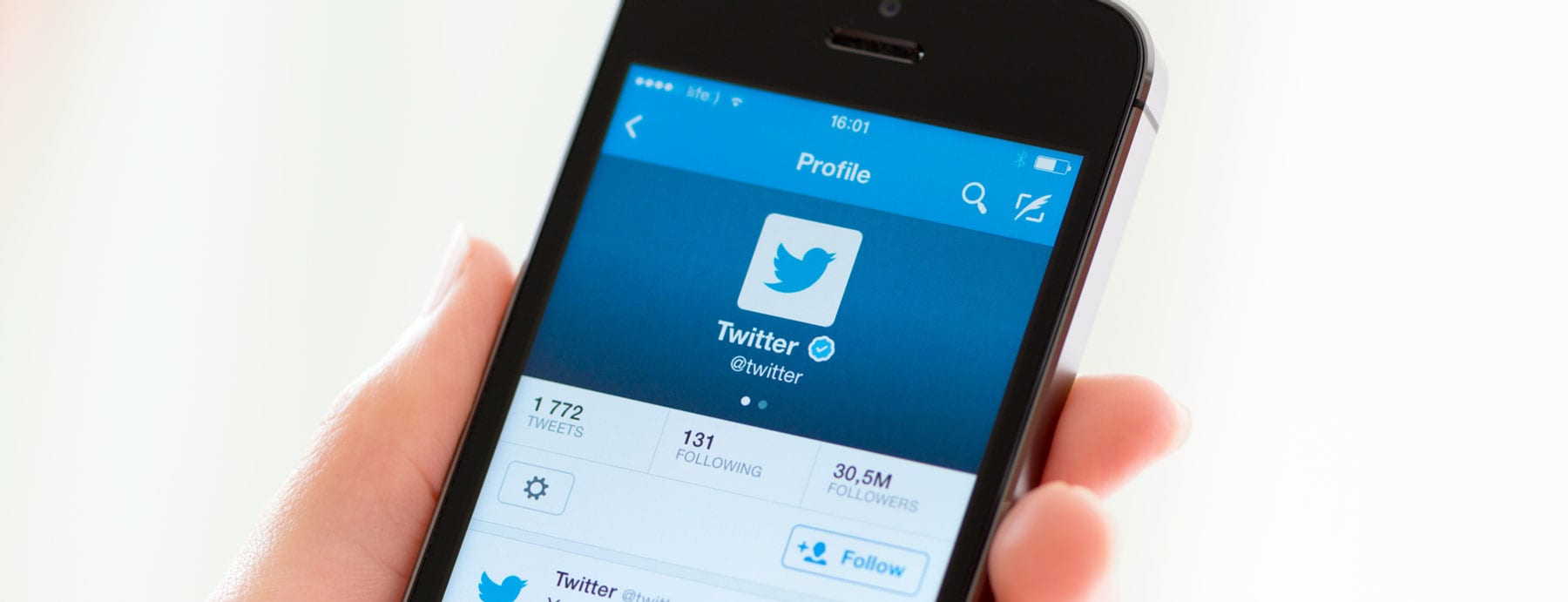At this point, it’s safe to say that “The Daily Show” is an abject catastrophe. Since Jon Stewart’s departure and taking of the helm by Trevor Noah, the show has lost its caustic bite, its intelligent nuance, and the distinct brand of satirical commentary that it delivered—especially during election years—has been replaced with diluted, goofy lampooning.
Scathing, laugh-out-loud humor exchanged unceremoniously by lowest-hanging-fruit jokes and intermittent chuckles. It’s terrible. So many wasted opportunities during this election cycle. All amounting to wasted DVR space. This piece spells it out pretty well.
But even considering its host’s deficiencies, “The Daily Show” still employs some of the industry’s top writers and talent which attempted to buoy Noah during the show’s inevitable growing pains. As of yesterday, it appears they’re struggling, too.
After news of the Supreme Court’s decision to strike down Texas’s law restricting abortion, someone on the social media staff sent out this ill-advised tweet:

Aside from being devoid of any wit or humor, the tweet simply lacked tact or taste. It’s indicative of the state of “The Daily Show” in under 140 characters. Sophomoric, simple, and glaringly deficient in any tone or substance. A once-revered comedic and political medium embracing the lowbrow and pointlessly offensive.
The show was rightly lambasted for it, and offered a non-apology apology. Instead of being sorry for poor attempts at being funny, I wish the show would apologize for ever letting Jon Stewart walk away from the anchor’s chair.







